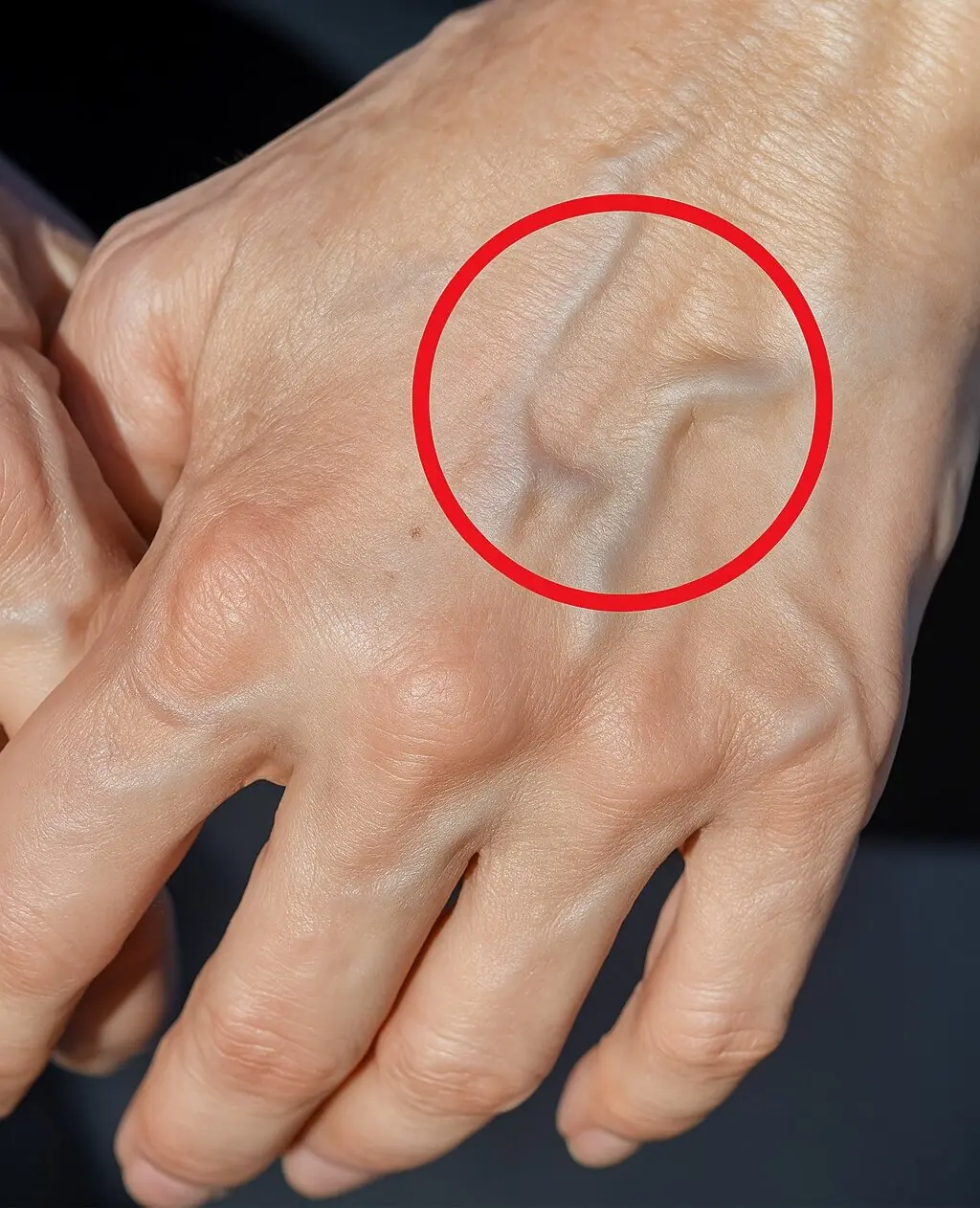
9 Warning Signs of Magnesium Deficiency You Shouldn't Ignore
Magnesium is an essential mineral that plays a crucial role in over 300 biochemical reactions in the human body. From muscle and nerve function to energy production and bone health, magnesium is vital for maintaining overall well-being. However, despite its importance, magnesium deficiency is surprisingly common, often going unnoticed due to its subtle and varied symptoms. Here are nine warning signs of magnesium deficiency you shouldn’t ignore.
1. Muscle Cramps and Spasms
One of the most common signs of magnesium deficiency is frequent muscle cramps or spasms. Magnesium helps muscles relax after contracting, so low levels can lead to involuntary twitches, cramps, or even painful spasms. These symptoms often occur in the legs or feet, especially at night.
2. Fatigue and Weakness
While many factors can cause fatigue, a lack of magnesium can significantly affect your energy levels. Magnesium plays a central role in ATP production—the molecule responsible for energy in your cells. Without enough magnesium, you may feel constantly tired or physically weak, even after adequate rest.
3. Mental Health Issues
Magnesium affects brain function and mood regulation. Low magnesium levels have been linked to an increased risk of depression, anxiety, and mood swings. People with magnesium deficiency may also experience brain fog, poor concentration, or a general lack of mental clarity.
4. Irregular Heartbeat
Magnesium is essential for maintaining a normal heart rhythm. A deficiency can lead to arrhythmias—abnormal heart rhythms—that may feel like skipped beats, fluttering, or a racing heart. In severe cases, this can increase the risk of more serious cardiovascular problems.
5. Nausea and Digestive Problems
Magnesium helps regulate muscle contractions throughout the digestive tract. Deficiency can lead to issues such as nausea, constipation, or loss of appetite. Over time, poor digestion can further limit magnesium absorption, creating a vicious cycle.
6. High Blood Pressure
Several studies have shown a correlation between low magnesium levels and high blood pressure. Magnesium helps relax blood vessels and regulate blood pressure. Without enough of it, your cardiovascular system may struggle to function efficiently, increasing the risk of hypertension.
7. Osteoporosis
Magnesium is crucial for bone health, working alongside calcium and vitamin D to maintain bone density. A magnesium deficiency can lead to brittle bones and an increased risk of fractures, especially in older adults. Over time, this may contribute to the development of osteoporosis.
8. Numbness and Tingling
A lack of magnesium can affect nerve function, leading to sensations such as numbness, tingling, or pins-and-needles—often in the hands, feet, or face. These symptoms are especially concerning if they become persistent or are accompanied by muscle weakness.
9. Insomnia or Poor Sleep Quality
Magnesium helps regulate neurotransmitters involved in sleep, such as GABA. A deficiency can make it difficult to fall or stay asleep, resulting in insomnia or restless nights. If you frequently wake up tired or have trouble sleeping, magnesium levels may be a factor.
Conclusion
Magnesium is often overlooked, but it’s critical for many body functions. Because symptoms of magnesium deficiency are often mistaken for other conditions, it's essential to be aware of these warning signs. If you recognize any of these symptoms in yourself, consult a healthcare provider and consider having your magnesium levels tested. Eating magnesium-rich foods such as leafy greens, nuts, seeds, whole grains, and legumes can help maintain healthy levels. In some cases, supplements may be necessary. Don’t ignore the signals—your body might be telling you it’s time to boost your magnesium intake.
News in the same category


Clear Throat Mucus Fast With These Tried-and-Tested Remedies They Don’t Want You to Know

Poor Postcancer Surgery Outcomes Tied to 3 Factors

Teamwork Boosts Primary Care Doc Job Satisfaction, Cuts Stress

HIV Was Successfully Eliminated from Human Immune Cells Using CRISPR Gene Editing in Landmark Study

Scientists Discover An “Off Switch” For Cholesterol—And It Could Save Millions Of Lives

How to Treat Urinary Tract Infection (UTI) Naturally According to Science

4 Common Causes of Body Pain on the Right Side

12 Subtle Vitamin D Deficiency Symptoms That Most People Ignore

What Your Heart Experiences When You Drink Energy Drinks

How to Eat Right for Your Blood Type

When to Worry About Veins That Appear Out of Nowhere

This is what sleeping on the left side does for our brain, stomach & glymphatic health
Sleeping position might be the last thing you think about before bed, but it can have a powerful impact on your health. Experts say that lying on your left side could improve digestion, support brain detox, ease back pain, and even enhance circulation.

Mother Rushes To Emergency Room To Deliver Triplets: Then Nurses Look Closer At Their Faces And Freeze

The First Ever Albino Twins Born In Argentina Will Leave You In Awe

Doctor Reveals: MRI Scan Of The Face Of A 33-Year-Old Woman Reveals Where All Of Her Filler Went

Man Loses Pulse For 45 Minutes, Wakes Up, And Reveals This Spine-Chilling Vision Of Afterlife

Your Heart May Be Older Than You Are

6 Types of Pain You Shouldn’t Ignore
News Post

Get Rid of Throat Mucus Faster With These Home Treatments (Evidence Based)

Clear Throat Mucus Fast With These Tried-and-Tested Remedies They Don’t Want You to Know

Poor Postcancer Surgery Outcomes Tied to 3 Factors

Teamwork Boosts Primary Care Doc Job Satisfaction, Cuts Stress

HIV Was Successfully Eliminated from Human Immune Cells Using CRISPR Gene Editing in Landmark Study

Scientists Discover An “Off Switch” For Cholesterol—And It Could Save Millions Of Lives

How to Treat Urinary Tract Infection (UTI) Naturally According to Science

4 Common Causes of Body Pain on the Right Side

The Truth About Eating the Black Vein in Shrimp Tails

12 Subtle Vitamin D Deficiency Symptoms That Most People Ignore

What Your Heart Experiences When You Drink Energy Drinks

How to Eat Right for Your Blood Type

Eyes Full of Hope, Heart Full of Trust.

When to Worry About Veins That Appear Out of Nowhere

This is what sleeping on the left side does for our brain, stomach & glymphatic health
Sleeping position might be the last thing you think about before bed, but it can have a powerful impact on your health. Experts say that lying on your left side could improve digestion, support brain detox, ease back pain, and even enhance circulation.

I Haven’t Seen My Daughter in 13 Years — Then a Letter Arrived from a Grandson I Never Knew

This is why you should keep the bathroom light on when sleeping in a hotel
Leaving your hotel bathroom light on at night might seem unnecessary, but it could be a small habit that makes a big difference for your comfort and safety. From preventing nighttime accidents to deterring intruders, experts say this simple tip can protec

Wife Left Husband to Raise Their Baby Alone — 20 Years Later, She Reached Out to Their Daughter
